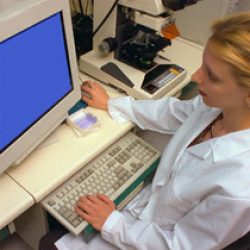Research on Computational Toxicology
Computational toxicology analyzes the interaction between different molecular substances. The goal is to find out what are the associations that affect the toxicity of a substance. The combinations, of course, are endless. To discard the uninteresting ones, Ernesto Illy had suggested using digital simulation methods.
Computational toxicology combines toxicological chemistry, which studies the behavior, activation and production of toxins through in vitro and in vivo experiments and the discipline of digital simulation. The latter studies the chemical reactions between toxins and constituents of the body, such as proteins and enzymes, exploiting the potential of the computer.
The union between the two sciences led to an optimization of the experimental activity: the computational simulation made it possible, in fact, to identify the most interesting reactions, which were then studied and deepened thanks to the classic approach of toxicological chemistry.
The Fondazione Ernesto Illy and SISSA – International School of Advanced Studies – of Trieste started this research project in September 2011.
For the results of the project, we invite you to read the published report (in English).
Completed in 2013, the computational science study on coffee continued with a collaboration with the Jülich Research Center.



